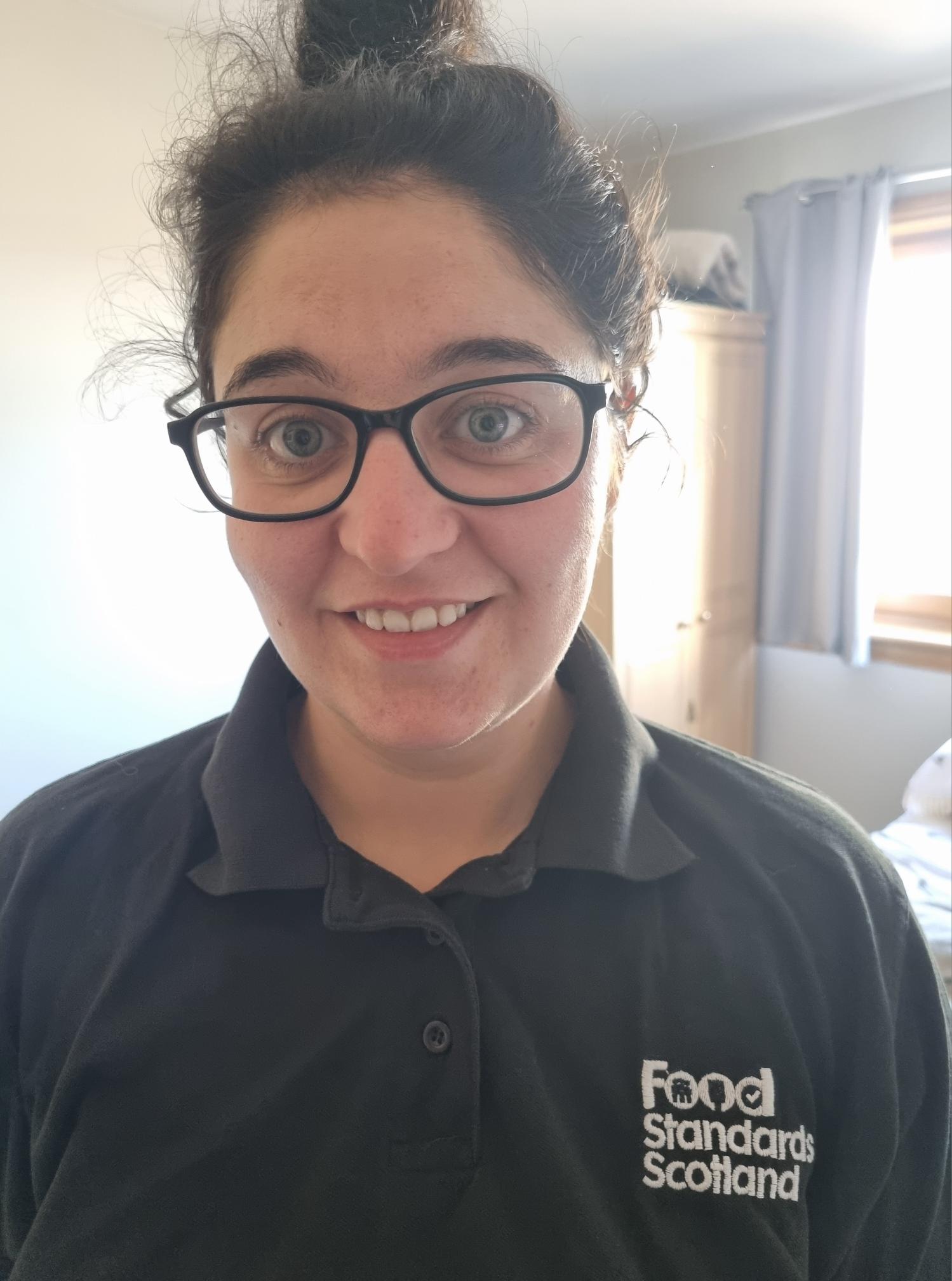News & Updates
Q&A: My Journey to Becoming a Meat Hygiene Inspector

Tell us about your journey to becoming a Meat Hygiene Inspector (MHI):
I originally set out to become a vet and completed an undergraduate degree in Animal Science. I even worked in a veterinary practice, but quickly realised it wasn’t the right fit for me. What I did fall in love with was parasitology, public health, and animal welfare. That passion led me to pursue a master’s degree in epidemiology, focusing on the economic challenges within the industry.
While I was considering a PhD, I came across a vacancy at Food Standards Scotland (FSS) for Meat Hygiene Inspectors. The role immediately caught my attention—it sounded fascinating and offered a chance to gain hands-on insight into the industry while helping ensure food safety for the public. I’ve always believed that animals raised for the food chain deserve to be treated with respect and handled as humanely as possible, and this role aligned perfectly with that value.
I hadn’t even realised MHI was a career option until I saw the job listing. I applied, feeling like a nervous wreck—which is unusual for me! But meeting Greg and Arabella during the process really put me at ease. They made me feel welcome and never out of place.
Since then, I’ve absolutely loved the role. The academic side of the training was manageable, but I was initially nervous about the practical side—especially my knife skills, which were about as good as they are in the kitchen! Thankfully, the team was incredibly supportive, and I quickly built up my confidence.
Although I’ve met some of the HR and IT teams, working in the field means that most of my day-to-day interactions are with colleagues in the plant.
What does a typical day look like for you?
I work in a sheep and cattle plant, with a higher volume of sheep. When I first started, we were processing around 1,800 sheep a day. You quickly get used to the pace of the line, and your duties vary depending on where you’re stationed.
We have offline responsibilities too, such as monitoring welfare, hygiene, and stunning procedures. Typically, we start on the sheep line until lunchtime, then move to the cattle line. There’s also a fair bit of paperwork involved to ensure cattle passports and food chain information are accurate and compliant with traceability regulations.
We handle exports as well, so once we receive our Certificate of Supervision of Operations (CSO), we verify slaughter dates and ensure everything is traceable.
People often don’t realise just how much care and attention goes into ensuring animal welfare and making the process humane, seamless and safe.
Tell us about winning the Trainee Meat Hygiene Inspector of the Year award:
I officially qualified as an MHI on 10 March, after six months of training that included both theory and practical hours.
My assessor nominated me, which meant I had to submit a statement outlining my journey from trainee to qualified MHI. It included feedback from my Field Operations Coordinator and examples of the work I’d done. I was genuinely surprised and incredibly humbled by the nomination.
I’ve always given 100% to everything I do, so it was really meaningful to have that recognised. I also feel like I owe a lot to the team around me—when you’re surrounded by such a supportive group, it naturally pushes you to give your best.
The awards dinner is being held at Harper Adams University on 12 September, and I’ll be attending with three colleagues. I’m really looking forward to meeting others in the field and celebrating together.
What are your future career aspirations?
I’m truly grateful for the opportunity to work with FSS and excited to see where my career takes me next. The team at Turriff is fantastic—we’ve got great camaraderie, and everyone takes their role seriously. It’s a great environment to grow in.
What is your advice for aspiring MHIs?
If you ever see an opportunity with FSS, go for it. You might be surprised by how rewarding the role is and how much of a positive impact you can have on public health—especially if you’re interested in disease control and animal welfare. You won’t be disappointed.